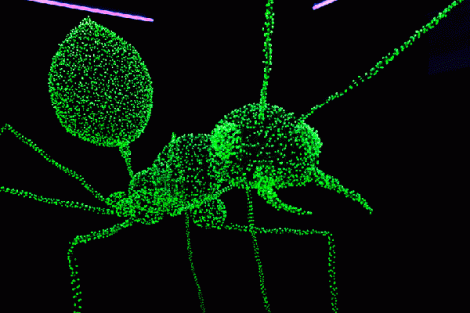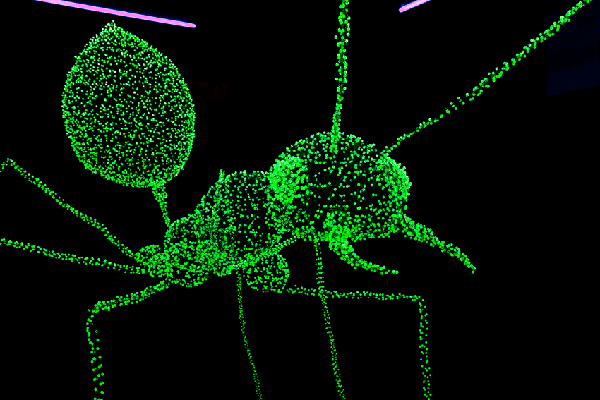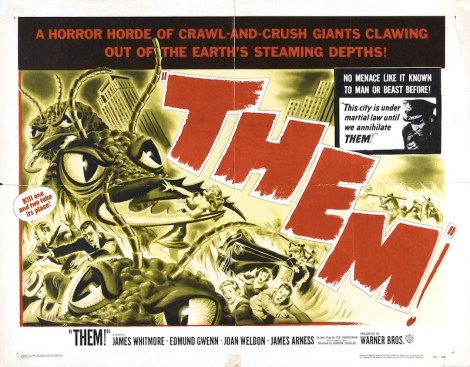
Nuclear power didn’t make this radioactive ant — art did. But the 20-foot insect, which is made out of beads of uranium glass, is not just a terrifying work of art, but a commentary on the Fukushima Daiichi nuclear meltdown.
The ant is part of an installation called “What The Birds Knew,” by artists Ken and Julia Yonetani. The works that make up the piece, which also include a chandelier and the word “meltdown” (kind of on the nose, guys), are all made out of uranium glass, which is radioactive but not radioactive enough to pose a health threat to viewers. Under a UV light, the uranium in the glass glows bright green, which makes the giant insect look more than a little bit menacing, but kind of just makes the chandelier look awesome.
Why an ant in particular, and not, say, a butterfly? Well, it’s a little convoluted. The artists explain [PDF]:
The dominating presence of the giant green ant traces the relationship between recent nuclear events in Japan to uranium mining in Australia. In 1970, a large deposit of Uranium was discovered in Nabarlek in the Northern Territory, only metres from a sacred Aboriginal site known as Gabo Djang (the Dreaming Place of the Green Ants). The Kuwinjku people made a land claim to preserve the area. According to traditional story, if the ants’ eggs were disturbed, dire misfortune would result. Despite this, Uranium mining began in 1978 and was subsequently sold to several countries including Japan.
But I suspect there are other, more culturally resonant reasons as well.





